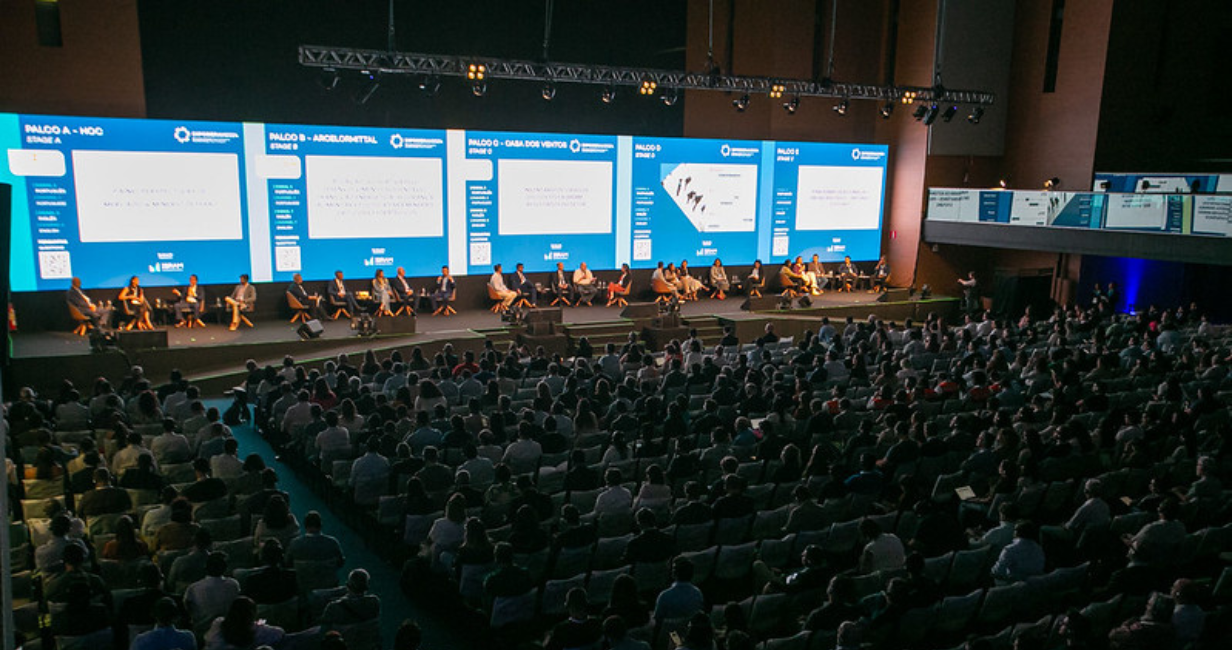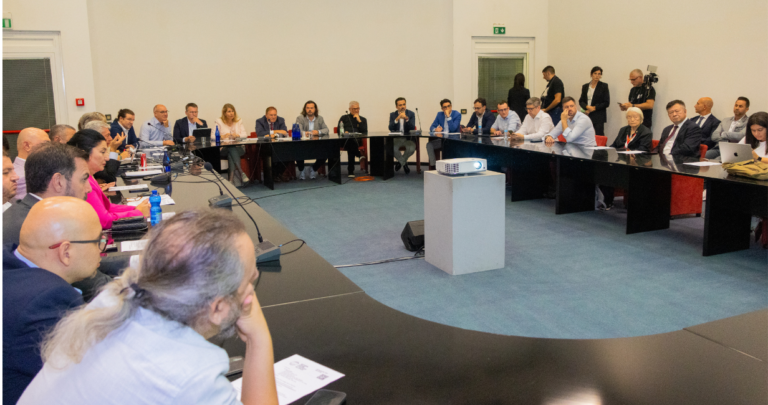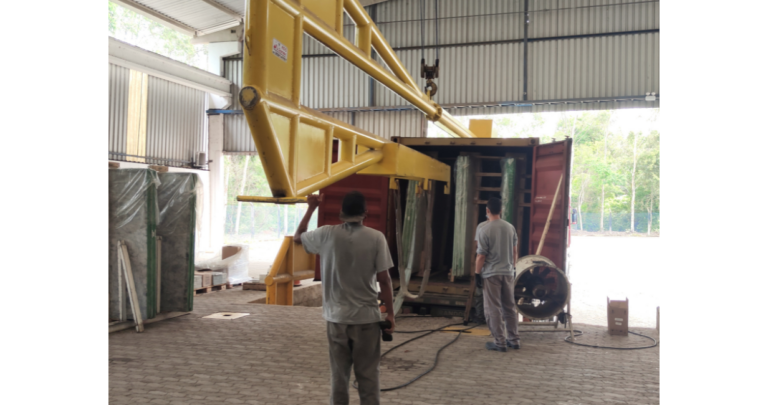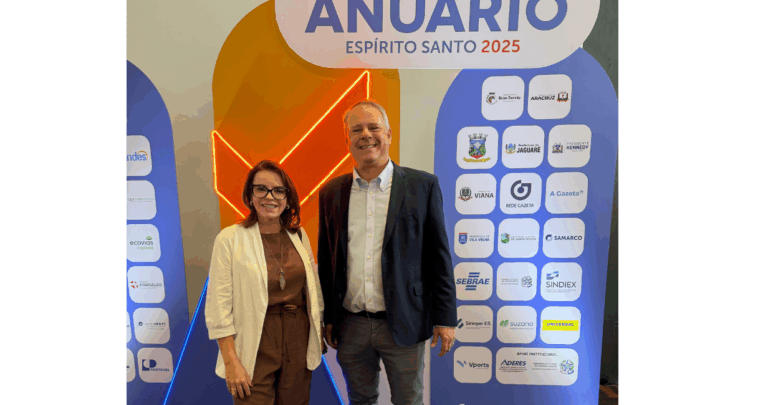
The participation of the Brazilian Center of Natural Stone Exporters (Centrorochas) in Exposibram, the Brazilian Mining Expo & Congress, was strategic, consolidating its role as a representative of the Brazilian natural stone industry.
Regarded as one of the most relevant mining events in Latin America and held by IBRAM [the Brazilian Mining Association], Exposibram was attended by the main organizations related to the mineral sector between September 9 and 12.
On September 9, the association’s superintendent, Giovanni Francischetto, participated in the Forum of National Mining Organizations, whose central theme was the need to strengthen the National Mining Agency and the reinclusion of mining in the Environmental Licensing Bill, currently being debated by the Brazilian National Congress.
The forum also highlighted the importance of sustainable mining, which focuses on reducing carbon emissions, a crucial challenge for the future of the industry. The subject was even the central theme of a panel held on September 10, which included the participation of Centrorochas and Sindirochas [the Association of Natural Stone, Lime and Limestone Companies].
Environmental challenges on the agenda in the panel on Greenhouse Gases
In partnership with Sindirochas, Centrorochas complemented its participation in the event in the Panel “IBRAM GHG Inventory – Industry Results,” held on September 10. Represented by their legal advisor for environmental issues, Victor Athayde, the organizations presented the results of the inventory of greenhouse gas emissions by the sector.
“As in other sectors, the analysis base of our survey was very small, but we need to change this scenario. We came back home with the bounden duty of resolving this lack of data. This is something the industry intends to address with the recently launched EPD project,” said the lawyer, referring to the agreement signed between Centrorochas and IFES [the Federal Institute of Education, Science, and Technology in the state of Espírito Santo] to prepare the EPD (Environmental Product Declaration) for the sector. It will measure the carbon footprint of the industry over the next two years and be able to measure the environmental impact of the segment, which, as an input for coverings, has a much lower impact than competing products.
Participation in the panel also highlighted actions that were already implemented for the sustainability of the Brazilian natural stone industry, such as the reuse of 95% of water in the production process and the transformation of waste into byproducts, spotlighting the FiBRO project, which contributes to the circular economy by providing inputs for the ceramic and cement industries, for example.
“If, on the one hand, the industry goes back home with the duty to consolidate its data to have more elements for the carbon inventory, it is also important to demand more rational regulation from public management, especially due to what is stated in the program for the new Brazilian industry, which advocates cohesive regulation, with reduced regulatory burden, which often has other effects, unrelated to sustainability, and more assertive regulation,” the specialist in environmental issues concluded.
See also
Global natural stone federat ...
22 de January de 2026
Despite heavy tariffs, Brazi ...
11 de December de 2025
With a focus on logistics an ...
4 de December de 2025













